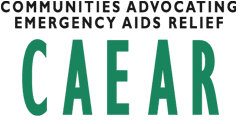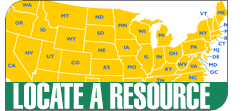
Google Groups: Part A Community | Part C Community | Grantee Resources




CAEAR Coalition Town Hall at Ryan White Grantee Meeting
Health Care Reform & Ryan White: What Must Be Done To Ensure They Fit
Wednesday, August 25, 2010
Podcasts below
Moderated by: Jon Bouker, Partner, Arent Fox
Panelists:
- Amy Demske, Sr. Government Relations Director, Arent Fox
- Laura Hanen, Director of Government Relations, National Alliance of State and Territorial AIDS Directors
- Ernest Hopkins, Chair, CAEAR Coalition
- Carole Treston, Executive Director, AIDS Alliance for Children Youth and Families
- Andrea Weddle, Executive Director, HIV Medicine Association
Podcasts
You can play or download the entire meeting or individual pieces below in MP3 format.
Complete Program
Welcome and Introduction
Overview of Health Care Reform Implementation Timeline
Panelist Bios
Question 1
How will the landscape of HIV care and treatment change for low-income and currently uninsured/underinsured people living with HIV as health care reform is implemented? In urban environments? In rural and suburban areas? How will we ensure that consumers of services have access to health care providers with HIV expertise as we seek to mainstream HIV care and de-stigmatize HIV status?
Question 2
Can you explain what support will be provided to those who qualify for insurance exchanges, but cannot afford the premiums, deductibles and co-pays?
Question 3
Do you think the advocacy organizations you represent are preparing your constituents for all that reform entails, including consumers having more choices, the ubiquity of electronic medical and billing records, the necessity to contract/negotiate service agreements with health insurance providers? What steps should all grantees and sub-grantees be taking now to prepare for the changes?
Question 4
The Ryan White Program has supported the development of a model of care that has carried us through the worst days of the crisis. We have built systems of care in rural and urban environments that are serving uninsured and underinsured people living with HIV/AIDS. When the coverage expansion under health reform takes place in 2014, will the Ryan White program still be needed?
Question 5
If we agree it will be important to maintain Ryan White funding -- what should we be doing to document and evaluate the continued role for Ryan White?
Question 6
Currently the Ryan White Program plays an important role in covering the care for people with HIV at an acceptable compensation rate to most providers. This is in stark contrast to the current Medicaid reimbursement rates that are woefully below the actual cost of providing HIV care. Some of our best providers are refusing to accept more Medicaid clients at a time when many people living with HIV will be enrolling in Medicaid for their medical care. Will a mechanism be put in place in the new health care environment to cover the gap between Medicaid reimbursement rates and the actual cost of care that doesn't leave HIV medical providers with significant uncompensated costs? Is there a role for the Ryan White in addressing this problem?
Audience Q&A
CAEAR Coalition · P.O. Box 21361 · Washington, DC 20009-1361 · Tel: 202-789-3565 · Fax: 202-332-7087 · Email: info@caear.org